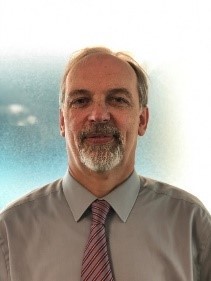

The UN Global Working Group (GWG) on Big Data for Official Statistics is an intergovernmental body active under the UN Statistical Commission, consists of 30 countries and 16 international organizations and works with a much larger community of experts to prepare guidance on how to use Big Data, data science and advanced technologies to compile timelier and more relevant indicators.
The GWG will conduct a webinar jointly with the Federal Statistical Office (FSO) of Switzerland on the topic of data innovation in official statistics. FSO has taken the initiative to include data science into the portfolio of its work. This will be for the benefit not only of the Federal Statistical Office but also of other government departments.
The GWG has just conducted a Hackathon in the use of AIS data on the UN Global Platform. AIS is real-time data which tracks the position of ships around the world, and the UN Global Platform is a cloud-based collaborative environment for the GWG community of statisticians and data scientists. During the Hackathon 17 teams used AIS data to develop new applications, which can help in the COVID-19 response or in Climate Action. The winner and runner-up of this contest will present their application during this webinar.
The webinar is part of the "Road to Bern" events and will take place on Thursday 15 October. You can watch the webinar below.
The program of webinar is as follows:
This "Road to Bern" webinar is organized together with the World Data Forum series and the UNSD Brown Bag Series.

Dr. Ronald Jansen is Assistant Director of UN Statistics Division and Chief of UNSD's Data innovation and Capacity Branch which leads the intergovernmental process for innovation of official statistics and implements the capacity development pillar of the Cape Town Global Action Plan in support of the 2030 Agenda. His educational background is in statistics and psychology. He graduated in 1984 from the University of Groningen, taught statistics from 1984 to 1989 at the University of Nijmegen, and in 1990 obtained his PhD in mathematical modelling of human information processing. Ronald joined UNSD in 1990.

Prof. Dr. Bertrand Loison is Member of Executive Board, Vice Director and Head of Division Registers at the Swiss Federal Statistical Office (SFSO), Vice-Chair of the National Planning Committee E-Government Switzerland, Chair of the UN World Data Forum 2020 Project Organization Committee (UNO), Swiss Representative to the UN Global Working Group on Big Data for Official Statistics (UNO), Member of the Swiss Federal Administration Steering Group on Artificial Intelligence (AI). Since September 2018, he is also an Honorary Professor of Information Systems at University of Applied Sciences and Arts Western Switzerland (HES-SO), School of Management Arc, Institute for the Digitalization of Organisations (IDO). In addition, he is leading the SFSO “Data Science” Working Group that aims to implement Data Science processes and algorithms (machine learning and deep learning) into the current statistical production. He is especially interested in strategic and innovation management, digital leadership (i.e. people, organization, culture, and technology) and Data Science.
Blue Carbon team
The team targeted to develop a model for attributing vessel CO2 emissions to the locations where they occurred based on the vessel's AIS locations. This would support the creation of a global map of maritime CO2 emissions and enable the calculation of concentrations of CO2 emissions both geographically and over time to enable evidence-based policymaking.
Members of the Blue Carbon team are:
Thomas Dewilde is Manager Cyber Governance, Risk and Assurance at Wärtsilä, guiding the organization's implementation of risk-based governance and assurance across the cyber security domain. He studied maritime business at Southampton Solent University. As a digital innovator he is passionate about maritime, cyber security & finance.
Dennis Grebasch is Wärtsilä's Information Architect, guiding the organization along its data strategy to maximize the value of internal and external data assets. He graduated in 2005 from the University of Erlangen-Nuremberg in business economics and information science. Growing up close to the Kiel Canal, he has always been passionate about vessels and ports.
Tomi Kallava is a Data Scientist at Wärtsilä, helping the organization to apply advanced analytics to its solutions and business decisions. He graduated from the University of Helsinki where he studied applied mathematics and computer science. He is passionate about not only solving problems but how to do it efficiently in the cloud.
Alexandra Kapustina is a Data Scientist at Wärtsilä. She has a master’s degree in applied mathematics and specializes in geospatial data analysis, focusing on big data technologies, machine learning and deep learning methods. She is enthusiastic about providing smart technologies based on data analytics in the maritime industry that increase efficiency.
Gennady Obraztsov is a Junior Software Engineer at Wärtsilä, having previously developed a module for automatic determination of atmospheric fronts. In 2020 he graduated from ITMO University, St. Petersburg, his major is thermal physics and minor is energy-physical monitoring. His main directions of development and interests are machine learning, weather and the physical component of processes.
Farid Rakhmatullin is a Junior Software Engineer at Wärtsilä, organizing deployment of ML models and developing prediction services. He graduated from Moscow State University with a master's degree in fundamental mathematics and mechanics. His passion is modern DevOps technologies and mathematical problems.
Data Caliber group
We are presenting a method for collecting transit information from both the Panama Canal and the Suez Canal. The results of such methods reveal that a follow-up of transit information in both the Panama Canal and the Suez Canal can signal the health of international trade from a reduced sample. Moreover, helps in establishing a framework for just-in-time arrival policies for the reduction of vessel emissions based on operational measures, with the hackathon methods ready to generate results that could serve as gauges of implementation success. The results are aligned to attend SDG 8 (Decent work and economic growth) in terms of efficiency enhancement on both canals operations, SDG 13 (Climate Action) from the emissions reduction on vessels, and SDG 17 (Partnership for goals) with the initial cooperation of members from both canals.
Members of the Data Caliber Group are:

Rebeca Caceres is a Business Analyst at the Panama Canal Authority

Hussein Ashry is an Economist and Shipping Analyst from the Suez Canal Authority

Javier Sanchez Galan is Professor at the Technological University of Panama

Javier Diaz is Professor at the International Maritime University of Panama

Gabriel Fuentes is a Ph.D. student at the Centre for Applied Research at the Norwegian School of Economics




